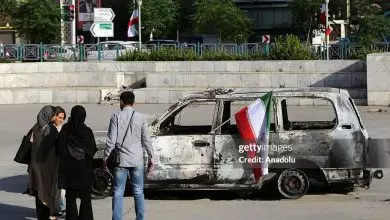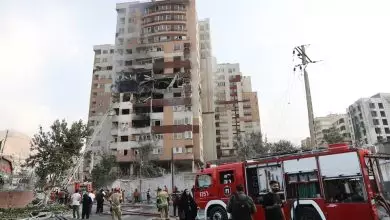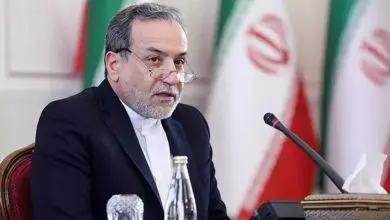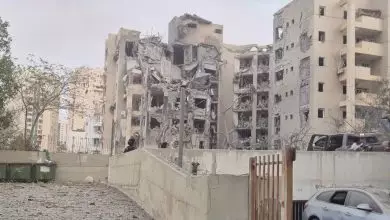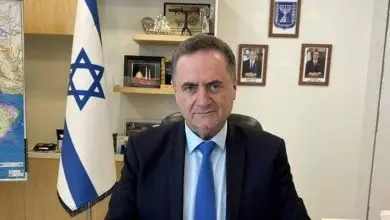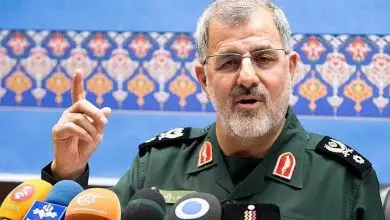Hezbollah Heavily Bombards ‘israeli’ Occupation Sites with Burkan Missiles
In support of the Palestinian people and resistance in Gaza and in light of the Israeli aggression o...
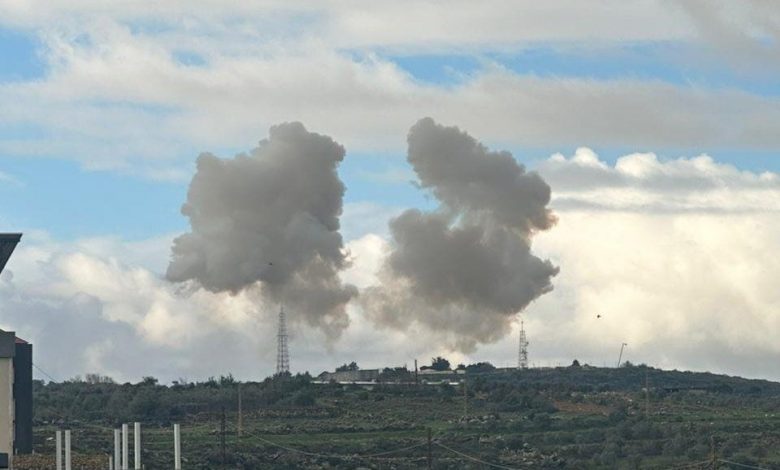
Hezbollah military media issued consecutive statements to illustrate the attacks and their outcomes.
The first statement mentioned that Islamic Resistance fighters targeted Birket Risha site with Burkan missiles at 12:20 AM [midnight on Sunday] Monday, January 29, 2024, achieving a direct hit.
Islamic Resistance fighters targeted Hadab Yareen site with Burkan missiles at 12:20 AM [midnight on Sunday] Monday, January 29, 2024, achieving a direct hit, according to the second statement.
The third statement indicated that Islamic Resistance fighters targeted Branit barracks with Burkan missiles at 8:00 AM on Monday, January 29, 2024, achieving a direct hit.
Islamic Resistance fighters targeted a gathering of “Israeli” enemy soldiers behind Jal Al-Allam site with a Falaq missile at 10:00 AM on Monday, January 29, 2024, achieving a direct hit, the fourth statement maintained.
The fifth statement affirmed that Islamic Resistance fighters targeted a gathering of “Israeli” enemy soldiers in the vicinity of Metat barracks with missile weapons at 11:15 AM on Monday, January 29, 2024.
The sixth statement indicated that Islamic Resistance fighters targeted Al-Mutela site with appropriate missiles at 11:45 AM on Monday, January 29, 2024, achieving a direct hit.
Islamic Resistance fighters targeted a gathering of “Israeli” enemy soldiers in Hunin Castle with missile weapons at 01:30 PM on Monday, January 29, 2024, scoring a direct hit, according to the seventh statement.
The eighth statement emphasized that Islamic Resistance fighters targeted a gathering of “Israeli” enemy soldiers in the vicinity of Zar’it barracks with appropriate weapons at 02:10 PM on Monday, January 29, 2024, scoring a direct hit.
The ninth statement underscored that the Islamic Resistance fighters targeted on Monday, January 29, 2024 at 03:55 pm a gathering of “Israeli” enemy soldiers at Al-Samaqa site with missiles, scoring a direct hit.
According to the tenth statement, Islamic Resistance fighters targeted, at 05:10 PM on Monday, January 29, 2024, Branit barracks with two “Falaq” missiles, scoring direct hits.
Islamic Resistance fighters targeted, at 06:00 PM on Monday, January 29, 2024, a gathering of “Israeli” enemy soldiers on Tallet Al-Tayhat with missile weapons, causing direct hits, the statement highlighted.
The twelfth statement asserted that Islamic Resistance fighters targeted, at 06:30 PM on Monday, January 29, 2024, the deployment of “Israeli” enemy soldiers in the vicinity of Al-Jardah point with Burkan missiles, causing direct hits.
Hezbollah military media released a video which refutes the Israeli claims that the Resistance missile fire did not hit the spy devices at the maritime site in Ras Naqoura.
Hezbollah military media also released a video which reflects the notion that the Zionist enemy does not acknowledge its losses.
Hezbollah mourned in two statements its fighters Hussein Fadel Awada and Hussein Khalil Hashem who embraced martyrdom all the way to Al-Quds.

